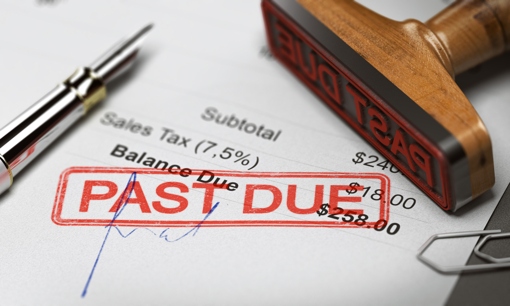It is a known fact that debt can be overwhelming, particularly when you are trying to pay off debts and your efforts don’t seem to be succeeding. The key is to be organised, and ensure you prioritise your debt instead of attempting to pay everything in one go. At this point, you may be wondering how can I do this, and successfully? Here are our six top tips to get out of debt fast.
6 tips to get out of debt fast:
1. Don’t ignore the problem
It might sound self-explanatory, but when you are facing debt, it can be easy to hide any bills and bank statements and pretend it’s not happening. However, the only way to help the situation is by facing the problem head-on, to prevent your debts from getting any worse.
This may seem intimidating, and it is. We won’t sugar coat it for you: it’s not easy by any means. It is crucial that you have friends and family who can support you emotionally at this difficult time. It can be hard to stick to a budget when it is so different to what you are used to. If you have friends and family to encourage you when you have a setback – which inevitably will happen – it can help to achieve your goal and get out of debt fast.
2. Look at your financial situation
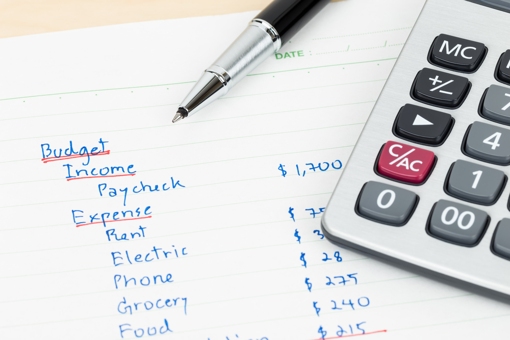
Photo credit: Casper1774 Studio / Shutterstock
It is important to be aware of your finances, to help you to deal with the problem and get out of debt fast. By doing this, you should be able to make a plan and identify what needs to change in order to keep you above board. Good or bad, once you know where you stand, you are in a position to do something about it.
The point of this exercise is to get a realistic view of your finances and where you are financially. For instance, you might want to:
- Work out how much money you have coming in each month. Include your regular wages as well as any benefits, child maintenance or any other income you receive.
- Work out all of your outgoings, including ‘essentials’ such as your mortgage, outstanding debts and food as well as more ‘luxury’ spending.
- Be realistic about these figures. Work to a ‘worst case scenario’ where you balance the lowest possible amount of income you’re likely to have coming in against the largest outgoing you are likely to have.
- Identify how much money you have available to pay off your debts and where you can cut back and make savings on your current spending.
3. Organise your debts
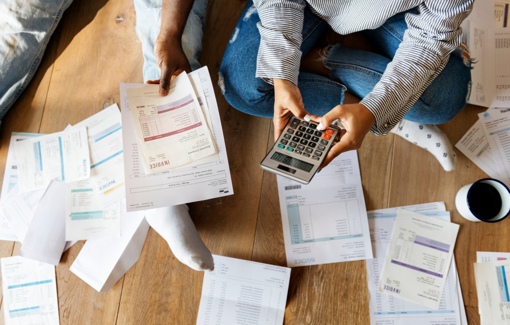
Photo credit: Rawpixel.com / Shutterstock
Separating your priority vs non-priority debts is the first step towards a debt-free life. What should you prioritise first?
– What are priority debts?
Priority debts produce the most significant repercussions if left unpaid. Often, if you don’t pay, the lenders can take your assets in order to pay off your debt, which may result in the loss of your car, for instance.
Often, priority debts are often deemed as utility bills and housing payments, as if you fail to pay for these, you could face disconnection. The following are the most commonly referred to as “priority debts”:
- Utilities (electricity and gas)
- Shelter (mortgage payments/rent)
- Court orders
- Tax (income tax, VAT, national insurance)
- Secured loans (car finance payments)
- TV licence
- Childcare
Although some prefer the “debt-snowball method”, which suggests that you pay the debts with the lowest balances first to build momentum. It makes perfect sense to clear those with the higher interest rates out of the way first, but this is entirely dependent on the individual as each person’s financial situation is different.
– What are non-priority debts?
As the name suggests, non-priority debts are debts that are much less critical. However, this doesn’t mean that they aren’t important, they should be paid after you have paid off your priority debts.
Even though you may incur interest on these debts, lenders have less authority. This means that there is often more time to resolve the issue before being taken to court or a penalty notice is issued. More often than not, overdue payments will result in the suspension of your account, which is for the best, as when you are under financial strain, subscription services are not a necessity.
However, if you still cannot pay off any of your debts you can be made bankrupt.
4. Cut back where possible
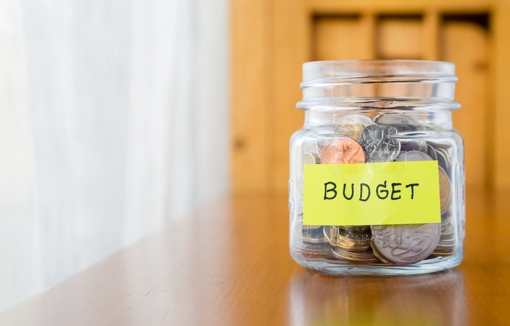
Photo credit: vinnstock / Shutterstock
Budgeting is key, to ensure you are saving money to pay off your debt. It is highly advisable to keep a spending diary or write a daily or weekly budget, to help you figure out where you are spending cash unnecessarily.
By making a few small changes to your daily life can help to reduce your monthly outgoings considerably, leaving you with more money to put towards clearing your debts. For example:
- Take a packed lunch to work, instead of buying food
- Sharing a lift to save on petrol and parking costs
- Going for a run or bike ride, rather than going to the gym
Alternatively, you might want to consider switching your energy supplier to see if you can get a better deal elsewhere, to save on pennies. In addition, reviewing your landline, mobile and broadband packages may be a good idea, as well as downgrading to satellite TV.
5. Don’t borrow more
Despite what the advertisements say, consolidation loans are not always the best solution as it will result in you having to pay more money back in the long run, rather than paying off debts as fast as possible.
6. Consider other avenues
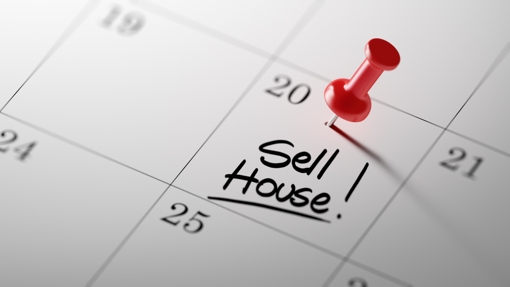
Photo credit: xtock / Shutterstock
More recently, it has become increasingly popular for homeowners to sell their home to release cash or equity tied up in their property.
Moving to a smaller home for money is one of the most common reasons people choose to move to a smaller home, in an attempt to reduce financial strain. Downsizing to a cheaper house with reduced monthly outgoings can help you to save money and could leave you with money left over to pay off any debts or outstanding bills in your name.
This is often used to help to boost funds if someone is in need of money – finding themselves “asset rich and cash poor”. Therefore, by selling their house, extra funds are being placed into their bank account to help with paying off debt in their name.
If you are struggling to find a cash buyer, we can give you money for your house and complete within 7 to 28 days, without the worry of paying estate agent fees too. Get in touch with us to find out more about what we can do for you.
Feature image credit: Olivier Le Moal / Shutterstock

